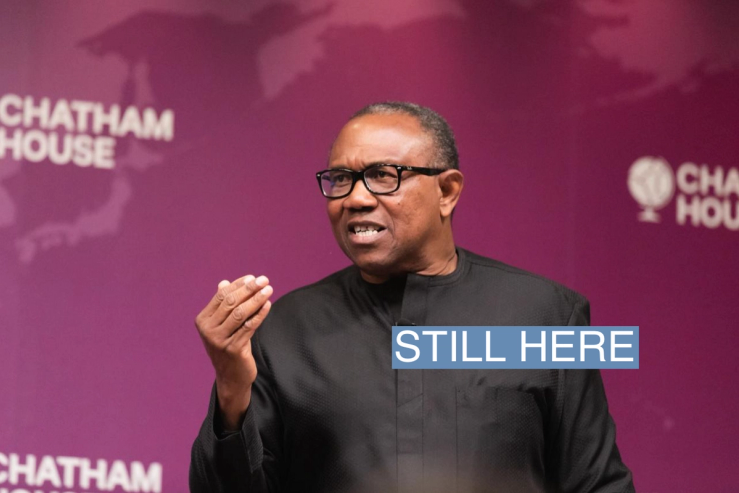The News

Nigerian presidential candidate Peter Obi has disrupted the country’s political duopoly to such an extent that he could force a run-off for the first time since the return to civilian rule in 1999 and help to anoint the eventual winner.
Obi, who is the Labour Party candidate, is one of the frontrunners alongside the Bola Tinubu, the candidate for the ruling All Progressives Congress (APC), and Atiku Abubakar, who is running for the main opposition People’s Democratic Party which ruled Nigeria for 16 years until 2015.
The candidate with the most votes will be declared the winner as long as they have secured at least one-quarter of the vote in two-thirds of Nigeria’s 36 states and the capital. If none of the candidates meet the threshold to win in the first round, the two candidates with the most votes will contest a run-off vote within 21 days.
In this article:
Alexis’s view
With the Feb. 25 poll looming, political insiders say Obi is unlikely to win the election because he lacks support in the country’s populous northern states. But they say he could force a run-off by taking millions of votes that otherwise would have gone to candidates of the two main parties. Obi could then play a pivotal role by endorsing one of the remaining two contenders.
Obi touched on leadership, economic policies and security during an hour-long speech at the Chatham House think-tank in London earlier this week which organizers said was watched by at least 670,000 people online. His address was frequently interrupted by cheers and lengthy applause from the roughly 250-strong audience. Around 100 people, many of whom hadn’t secured tickets for the sold out event, gathered outside to cheer and chant.
A survey by Nigeria’s NOI Polls in late December found that he is the frontrunner among decided voters, with 23% saying they would vote for him compared with 13% for Tinubu and 10% for Atiku.
But the key detail in the poll — which had a sample size of just 1,000 in a country of 200 million people — was the undecided voters and those who did not reveal their preferred candidate. They accounted for 29% and 23% respectively, giving credence to the idea that Obi’s popularity may mean there is no outright winner in the first round.
The View From Lagos
“With Obi amassing a coalition of disaffected voters in traditional PDP-voting and some APC constituencies, as well as fuelling a record number of new registrations, the establishment candidates are likely to lose significant vote share. A runoff is likely,” said Ikemesit Effiong, head of research with Lagos-based consultancy SBM Intelligence.
“The presence of a strong third party candidate with broad appeal in at least two geopolitical zones, the South East and South South, and substantial voting pockets in at least two others... upends the traditional political maths of Nigerian presidential politics.”
Notable
Mahmood Yakubu, chairman of the Independent National Electoral Commission, spoke at Chatham House the day after Obi’s address. He said the electoral body’s preparations included making provisions for the possibility of a run-off. This included plans to to print double the total number of ballot papers required for the first ballot in order for them to be used in a second vote. He said the approach, which is customary, was necessary because the 21-day time limit would not give the electoral body enough time to print a new set of ballot papers.

